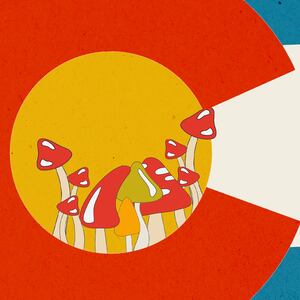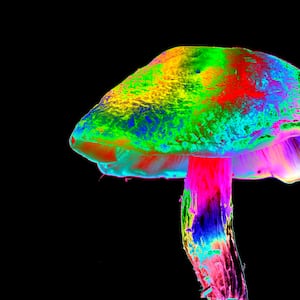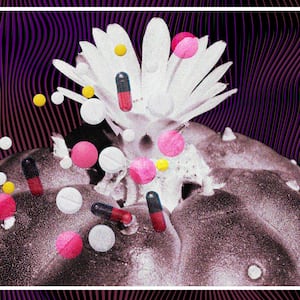A London biotech startup announced Wednesday that it had found success in treating major depressive disorder with intravenous DMT in a clinical trial. Though follow-up trials will be necessary to further prove out the drug’s efficacy, the findings add further fuel to the push to expand access to psychedelics as a form of treatment for depression and a host of other mental health disorders.
DMT, the acronym for N,N-Dimethyltryptamine, is best known as a psychedelic drug that elicits a very rapid, very intense, and relatively short duration of hallucinogenic effects (roughly 20 to 60 minutes). It is well known as the active ingredient in ayahuasca. In most parts of the world including the U.S., DMT is a controlled substance.
Small Pharma, the company behind the trial, said its new phase 2a clinical trial was the first placebo-controlled study to assess the efficacy treating depression with SPL026, an intravenous version of DMT the company had developed.
“I’m delighted by our short term results,” George Tziras, the CEO of Small Pharma, said on a conference call announcing the findings Wednesday. “With these results, we feel confident with moving forward with our SPL026 program.”
The new trial recruited 36 patients with depression and was conducted with two different arms: one in which participants were randomized into groups receiving either SPL026 or a placebo (and not being told which they had received), in order to assess how effective a single dose of the drug versus a placebo; and one in which all participants received an active dose of SPL026 and were assessed for 12 weeks in order to determine how well the treatment worked over a long period of time, and also observe whether there was a significant difference in a one-dose or two-dose regimen. Depression symptoms were assessed using the Montgomery-Åsberg Depression Rating Scale (MADRS).
Treatment sessions lasted roughly 1.75 to 2.5 hours, and included 30 minutes of dosing being given through a short IV infusion, psychedelic effects lasting 20 to 30 minutes, and a therapy session that ran for about an hour or longer.
As part of the study’s first arm, Small Pharma’s researchers found that patients who received SPL026 followed by supportive therapy found a 10.8 point difference in reduction in depression symptoms on the MADRS scale one week after the initial dose, compared to those who received the placebo. After two weeks, the MADRS score difference was 7.4—a small shrink, but still high.
And from the second arm, the major takeaway was that antidepressant effects did not differ significantly between a one-dose or two-dose regimen. The total average reduction in MADRS scores 12 weeks after a single dose of SPL026 was 15.4 points, and the researchers found a 57 percent remission rate in symptoms overall.
However, there were a number of participants who experienced mild to moderate adverse events including nausea, pain at the drug infusion site, anxiety, headaches, and other issues. But according to Small Pharma, there were no severe or life-threatening side effects to come up as a result of the treatment.
Overall, the company believes that since the treatment design is fast and rapid, it points to a pathway for clinicians to treat multiple depression patients a day with relative ease. The long-term efficacy observed over 12 weeks suggests that patients may only require infrequent dosing, which could make things vastly more convenient.
Many of these qualities are touted as benefits made possible by other psychedelics used for mental health therapy as well. There is a surging industry in the space within the last few years—including a race to scale up production of these drugs and make them legal to consumers.
Small Pharma plans to move forward with another phase 2 trial starting in March. The company also wants to begin preparing other trials that can observe how well SPL026 reacts with SSRI treatments, as well determine whether there is an intramuscular route of administering the drug that could cause the DMT to be absorbed in the bloodstream more quickly.







